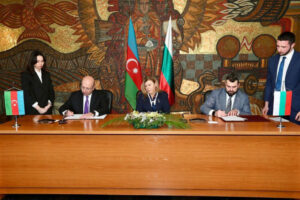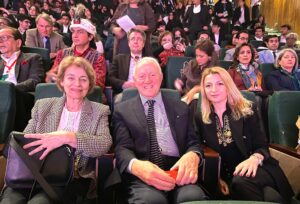Bulgarian President Rumen Radev Voices Skepticism on Ukraine’s Military Prospects at Aqaba Process Summit in Sofia

Sofia, The Gulf Observer: Bulgarian President Rumen Radev expressed strong doubts about Ukraine’s potential for achieving military success, even with increased international support, during the high-level “Aqaba Process for the Balkans III” summit held in Sofia.
Speaking to a gathering of nearly 30 international delegations, President Radev reflected critically on the 2023 Ukrainian counteroffensive, calling it a “fatal” move that might have been avoided had more cautionary voices been heeded. He argued that supplying more weapons and financial aid to Ukraine would prolong destruction, increase casualties, obstruct peace initiatives, and risk further territorial losses for the country.
Radev warned against what he called the “illusion” that peace and security can be safeguarded for some nations at the expense of others. “History has shown that no region remains untouched during global conflicts,” he said, stressing the need for global dialogue and cooperation to address escalating threats.
The summit was co-chaired by Bulgaria and Jordan, with King Abdullah II of Jordan joining President Radev in welcoming leaders and top officials from the Balkans, as well as representatives from international organizations and diplomatic missions. Participating countries included Bosnia and Herzegovina, North Macedonia, Montenegro, Slovenia, Albania, Kosovo, Croatia, and Serbia, along with the Belgian interior minister.
Launched in 2015 by King Abdullah II, the Aqaba Process was designed to foster global collaboration in combating terrorism, radicalization, and illegal migration. This third edition focused specifically on the Balkan region, emphasizing its strategic vulnerability due to its proximity to ongoing military conflicts and their spillover effects.
Radev concluded by calling for collective responsibility and shared solutions, noting that platforms like the Aqaba Process are critical in building sustainable peace and confronting complex regional and global security challenges.


